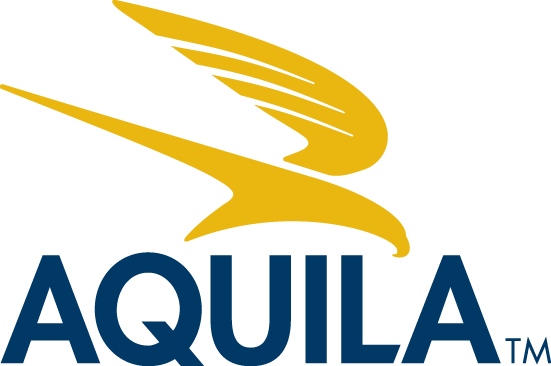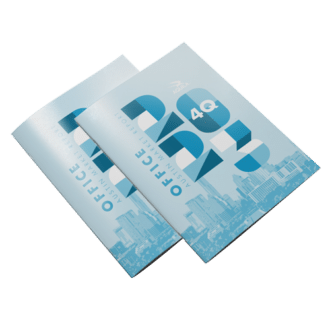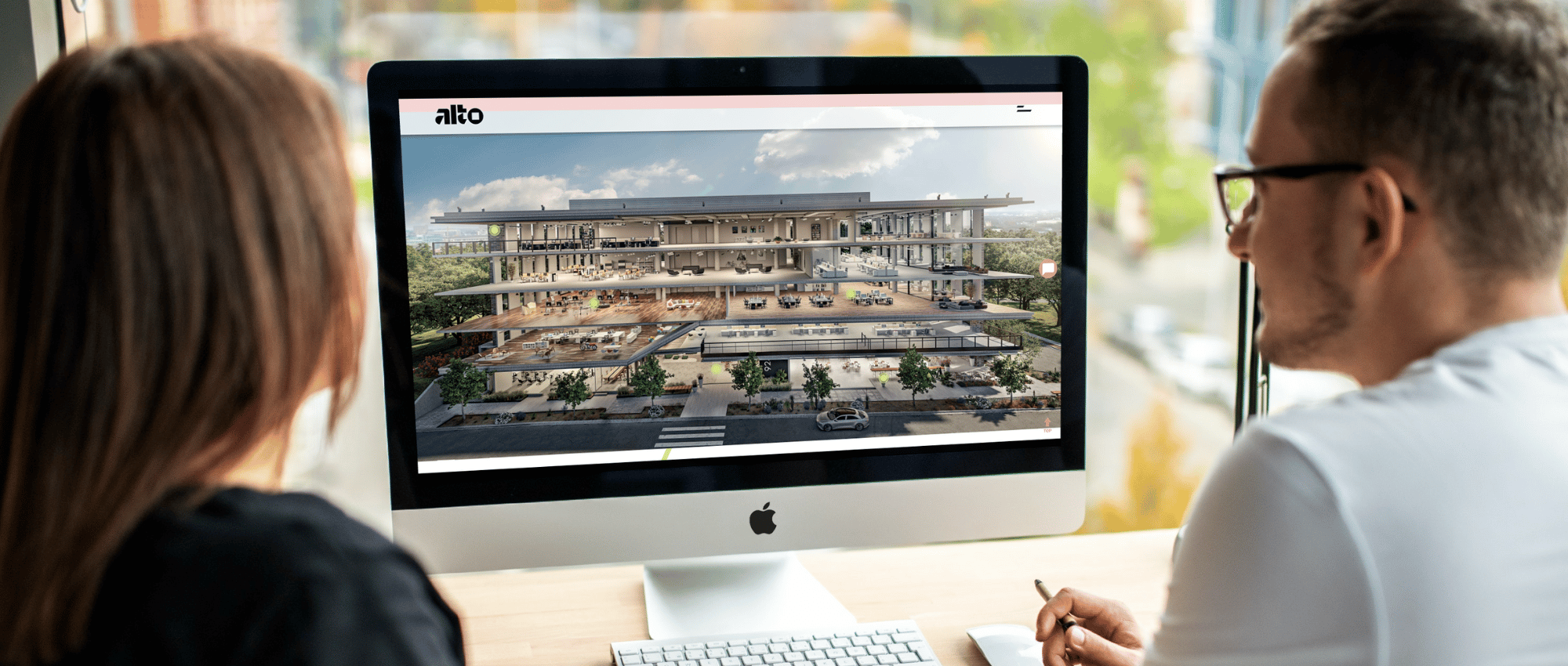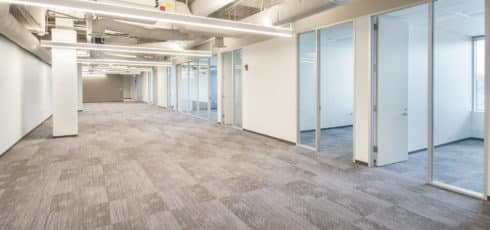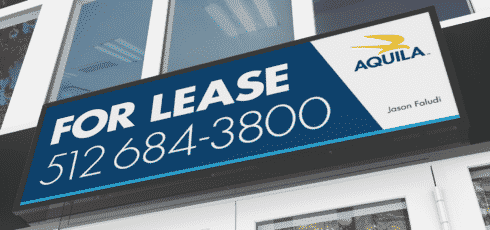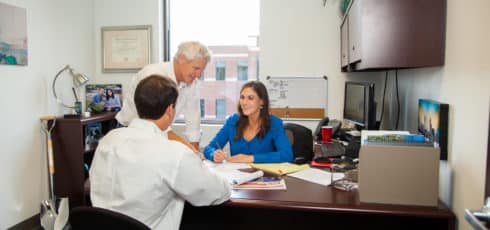Are you considering building a website for your commercial property? With digital marketing dominating the market, we are seeing property websites become more and more common. With that being said, there are still some things you need to consider before you decide to create a website for your property.
Read Next: The Ultimate Guide to Commercial Real Estate Marketing
In this article, we answer a few basic questions about building property websites including:
- When does it make sense to create a website for your property?
- When does it not make sense to create a website for your property?
- What type of website is the right fit for your property?
When does it make sense to create a website for your property?
Whether or not it makes sense to have a website for your commercial property usually depends on the property type and size of the property as well as your marketing goals.
Read Next: 7 Things That Should Be on Your Property Website
Size & Type of Property
In general, the bigger a property or building is, the more likely it is to need a website. Developers and owners of large mixed-use projects, retail centers, and multi-building office and industrial campuses generally create a website to seamlessly convey the opportunity to prospects.
You’re more likely to see a website for existing office buildings larger than 100,000 square feet with current or upcoming large blocks of vacancies or sometimes smaller office buildings that are being newly developed or repositioned.
Marketing Goals & Budget
Whether or not you choose to pursue creating a website for your property or not also depends on your marketing goals and budget. Common reasons for creating a website include:
- New developments that need to establish an identity in order to sell something that doesn’t yet exist
- Existing properties that have undergone major renovation
- Existing properties that have changed ownership
- Existing properties that want to change the identity and reputation of the property in the market
Websites are commonly seen for new developments because it’s important for a new project that doesn’t have recognition in the market to create awareness and educate audiences on its value propositions. These new developments also typically have a healthy marketing budget.
Often, we see older properties get new or updated brand identities following major capital improvements. Smart asset managers will budget for branding and marketing initiatives alongside other capital improvements so they have the horsepower to promote the changes as they are in progress or when completed. Once new branding has been established, a new website is a great way to spread awareness about the property and its updates.
Read Next: Do I Need Custom Branding for My Commercial Property?
When does it not make sense to create a website for your property?
Since property websites can be tedious to create and may require a significant amount of funding, not every owner wants to or should create a website for their property. In many cases, a brokerage firm’s standard brand materials can be sufficient for successfully marketing a property.
A property website might be a waste of time or money for smaller Class A properties, Class B properties, or value-oriented properties.
You should also consider if you have the time, money, and resources to create a successful website. A property website is only as strong as the strategy and promotion behind it. If your prospects aren’t going to be able to find and visit your website, it might not be worth your time.
What type of website is the right fit for your property?
So you’ve decided a website is a valuable investment for your property. But, what kind of website do you need? A fully custom site? A single page? A drag-and-drop template? The options are endless.
We will break down the best options for property websites and what types of properties each option is best for below.
Simple Property Websites
For smaller properties or properties with smaller budgets, a simple website is your best option. Usually, these types of websites can be built by you or your leasing firm’s marketing team through a drag-and-drop website builder such as Squarespace or Wix. These website builders offer easy-to-use templates that ensure a seamless experience as you build out your website.
You should first decide what content you want on your website before diving into the design. You will also need to decide if you want your site to be a single-scroll website, or have a navigation menu with multiple pages.
With simple property websites, the platform that you build your website on will usually also host your website – make sure you include this in your annual budget. You will also have the choice to purchase your domain through the platform, or you can purchase the domain elsewhere (from companies such as GoDaddy, Google Domains, etc.).
Next, we will talk about the most popular drag-and-drop website builders.
Squarespace
Squarespace makes it easy to learn how to build a website on its platform through video tutorials. The builder interface is user-friendly and they have many free templates to choose from. You also have the option to purchase a custom template for your website’s framework.
Some examples of property websites our team built through Squarespace include:
Wix
Wix is very similar to Squarespace and just as simple to use. Wix also has step-by-step guides for using its platform. They also offer free templates and the option to purchase a custom template.
Some examples of property websites our team built through Wix include:
Custom Property Websites
Custom websites are better for large, new developments with a substantial budget. These types of websites usually take a lot of time and money to build. These websites can also be a great tool to showcase the digital tools you have created for your property including videos, virtual tours, and other unique digital collateral. These digital tools can be built directly into the website or embedded.
We usually see owners opt to hire one agency to create the entire brand package including branding, collateral, website, and other materials so that everything has a cohesive look. An exception to this is if your property already has a strong brand. In that instance, you may just want to hire a company that specializes in web design.
If you decide a custom website is the right move for your property, you should first vet numerous agencies with website design experience. This way, you can compare pricing, functions, and other items to make sure you choose the right agency for the job.
Read Next: 6 Best Branding Agencies for Commercial Real Estate Property
Some important things to consider when hiring an agency to build your website include:
- Do they have experience building websites for other commercial properties?
- Can they handle everything from branding to design and development?
- Will they be handling the maintenance for the website including updates and hosting?
- Will you and your leasing team have access to the back end of the website to make edits?
- What platform will they be using to build the website?
Once you find an agency that fits your needs, you can begin the design process for your website. The agency you hire should be able to create a website that matches the branding and audience for your property. They should also take your ideas and opinions into account. Your leasing firm’s marketing team is a great resource for expert recommendations and assistance with design decisions.
Custom websites can range from a simple single scroll with custom elements to a completely interactive website with multiple custom pages. Generally, the more complex your website is, the more you will pay.
Most of the custom websites we have worked with have been built in WordPress. WordPress is user-friendly and has a back-end editor that is easy to update. If you plan on making updates to availability, adding new videos and photos, updating flyers, or anything else, you should make sure the agency that built the website gives your leasing firm’s marketing team access to make updates.
Hosting and Domain
The agency you work with should also be able to recommend a hosting platform for your website, as well as the best place to purchase your domain. Hosting and domain fees will either be billed monthly or annually. Paying annually is typically cheaper than paying monthly. You should also ask your agency what their recommended maintenance plan is (whether they can make updates for you or if you will have to do updates yourself.)
Some examples of custom websites built in WordPress that we have worked on can be found below.
Designed and built by COOP:
Designed and built by Misfit
Designed and built by Look.Think.Make.
Conclusion
Now that you know the basics of the different types of websites, you should be able to confidently begin a website project either alone, with your leasing firm, or with an agency.
Do you have further questions about branding or website design for your property? Reach out to me and I’d be happy to chat.


